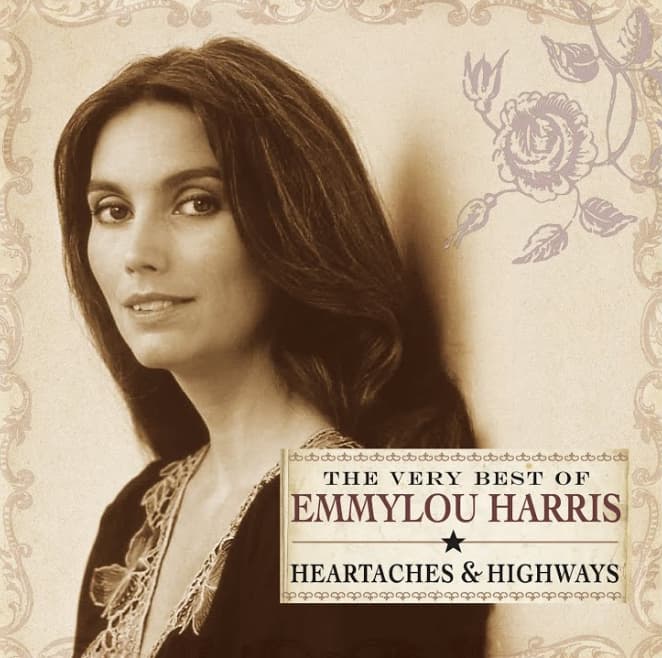
A Tender Promise of Reunion, a Quiet Longing for Yesterday’s Love
Ah, there are just some songs that, upon hearing the first few notes, instantly transport you back to a simpler time, when the radio felt like a trusted companion and every lyric seemed to capture the very essence of your own quiet heartaches and hopes. Emmylou Harris‘s rendition of “One of These Days” is undoubtedly one of those timeless treasures. It’s a country classic wrapped in a delicate, almost mournful silver thread, perfectly suited to a reflective evening, perhaps with a cup of tea and the sound of rain on the windowpane.
Released in March 1976 as the second single from her second major-label album, Elite Hotel, this beautiful tune quickly ascended the charts, cementing Harris’s place among country music’s elite interpreters. It peaked at an impressive Number 3 on the Billboard Hot Country Singles & Tracks chart in the US and reached Number 2 on the Canadian RPM Country Tracks. Though not originally her composition—it was penned by Earl Montgomery and first recorded by the great George Jones in 1972—Emmylou Harris made it unequivocally her own. Her vocal performance here is a masterclass in restrained emotion, delivering the lyrics with a crystalline clarity and an underlying ache that feels deeply personal, even when covering another artist’s work.
The meaning of “One of These Days” is rooted in a wistful promise of reconciliation. It’s a song sung from the perspective of someone who has suffered a heartbreaking split but clings to the steadfast belief that the love they lost will, one day, find its way back home. The speaker acknowledges the pain—”You’re not here, and I’m not there”—but the chorus provides the gentle, hopeful anchor: “One of these days, I’ll be back on my feet / One of these days, I won’t feel incomplete / One of these days, you’ll come back to me, baby / One of these days.” It speaks directly to that universal human experience of enduring loss while holding onto a sliver of faith that fate, or providence, will intervene and mend what is broken. It’s a message that resonates profoundly with older readers who know the long, winding roads of life, love, and occasional separation, and the enduring power of hope.
The song’s inclusion on the Elite Hotel album, which followed her breakthrough Pieces of the Sky (1975), solidified her artistic vision. Produced by the legendary Brian Ahern, the track, like much of her early work, seamlessly blended country with a touch of folk and rock influence, showcasing her unique ability to stand between genres. This particular period, following the tragic death of her mentor and duet partner, Gram Parsons, in 1973, was one of both profound grief and incredible artistic blossoming for Harris. While the deeply personal lament “Boulder to Birmingham” on the earlier album addressed her sorrow directly, “One of These Days” offers a more general, yet equally poignant, theme of hopeful resilience in the face of emotional turmoil, capturing a feeling many of us have carried through difficult times. The production is sparse and warm, a perfect frame for her angelic, evocative voice, allowing the simple truth of Earl Montgomery‘s lyrics to shine through without distraction.
It’s the quiet dignity in her voice, the sincerity with which she delivers lines about mending a broken heart, that makes this a song we return to decades later. It isn’t a plea or an angry demand; it’s a soulful testament to the enduring, sometimes irrational, optimism that love, true love, never truly dies. It simply waits for its moment to return, “One of These Days.”